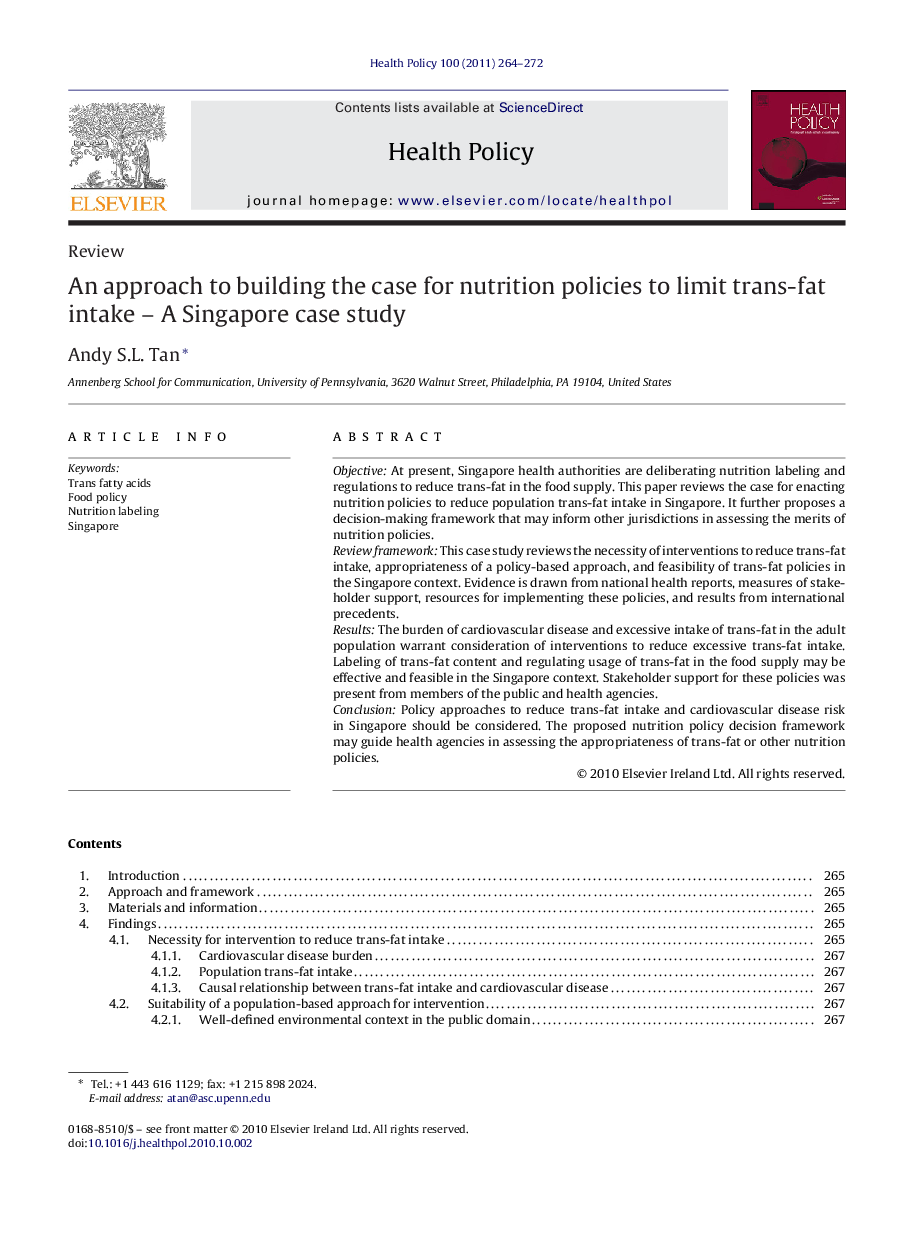| Article ID | Journal | Published Year | Pages | File Type |
|---|---|---|---|---|
| 4198167 | Health Policy | 2011 | 9 Pages |
ObjectiveAt present, Singapore health authorities are deliberating nutrition labeling and regulations to reduce trans-fat in the food supply. This paper reviews the case for enacting nutrition policies to reduce population trans-fat intake in Singapore. It further proposes a decision-making framework that may inform other jurisdictions in assessing the merits of nutrition policies.Review frameworkThis case study reviews the necessity of interventions to reduce trans-fat intake, appropriateness of a policy-based approach, and feasibility of trans-fat policies in the Singapore context. Evidence is drawn from national health reports, measures of stakeholder support, resources for implementing these policies, and results from international precedents.ResultsThe burden of cardiovascular disease and excessive intake of trans-fat in the adult population warrant consideration of interventions to reduce excessive trans-fat intake. Labeling of trans-fat content and regulating usage of trans-fat in the food supply may be effective and feasible in the Singapore context. Stakeholder support for these policies was present from members of the public and health agencies.ConclusionPolicy approaches to reduce trans-fat intake and cardiovascular disease risk in Singapore should be considered. The proposed nutrition policy decision framework may guide health agencies in assessing the appropriateness of trans-fat or other nutrition policies.
